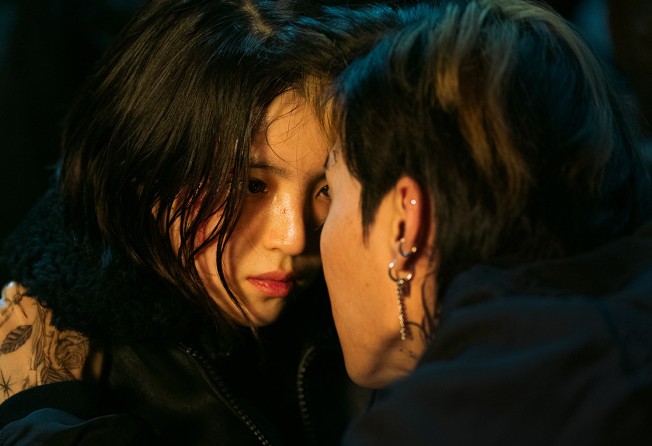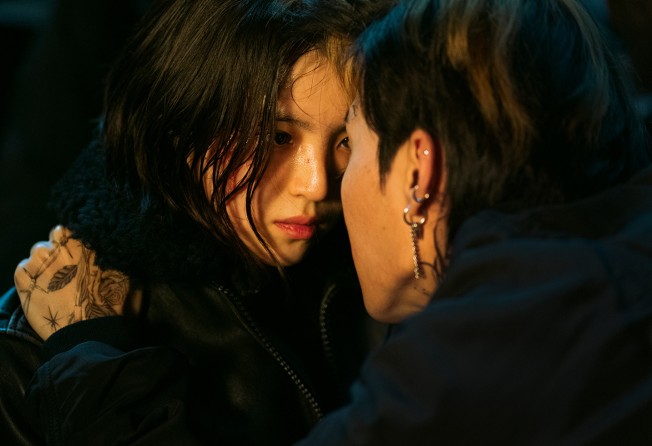K-drama review: My Name – Netflix gangland revenge drama starring Han So-hee spins its wheels after promising start
- Han So-hee seeks to avenge her drug-dealing father’s murder by joining his gang and going undercover as a cop. The show sparkled early on but has become dreary
- Despite its shortcomings, My Name offers more evidence that Korean TV drama series are aggressively and successfully tackling new challenges as they go global

This article contains spoilers.
3/5 stars
In South Korea, nothing is as important as family – you may be wondering, why start a review of a gangster revenge saga with a mention of families?
Partly because the revenge aspect of Netflix’s My Name boils down to a daughter looking to avenge her father, but mostly because this new eight-part series, despite its many appealing elements, fails to build on its early promise as it spirals in on itself – its world shrinking with each new family twist until it threatens to collapse.
Rising star Han So-hee of The World of the Married and Nevertheless tackles her first action role as Yoon Ji-woo, a student who drops out of high school when her drug-dealing father’s profession is revealed. Her father comes to her one evening and is killed on their doorstep, with Ji-woo looking helplessly on through the keyhole.
Ji-woo searches for her father’s killer and soon presents herself in front of Choi Mu-jin (Park Hee-soon), the head of the Dongcheon drug ring and her father’s blood brother. Ji-woo joins the gang, toughens up among the recruits and, after proving herself in a mass cage fight, she is given a special assignment: go undercover in the police and uncover her father’s killer, who used a police-issued weapon to kill him.
Ji-woo becomes Oh Hye-jin and before long winds up in the narcotics squad of the Inchang Police Department with her new partner Jeon Pil-do (Ahn Bo-hyun) and under unit leader Cha Gi-ho (Kim Sang-ho), who once suspiciously darkened her doorstep soon after her father’s death.
Since families are the linchpin of many Korean screen narratives, their denouements often involve the airing of family secrets or revelations of family trauma. This a natural storytelling device, common all around the world, and has given Korean media some of its most memorable moments – the twist in Park Chan-wook’s Oldboy comes to mind.
However, when Korean storytellers become too obsessed with family units, the worlds they create begin to feel a lot smaller.

After a pair of punchy opening episodes, My Name starts to drag its feet once Ji-woo becomes a narc.
Things promise to heat up again when Do Gang-jae (Chang Ryul), a fellow Dongcheon recruit who was excommunicated after attempting to rape her, returns as the head of a new drug-addled gang, whose colourful and baggy fashion would make them at home in most pop music videos.
However, Gang-jae’s gang, as well as the existential threat from a larger Japanese organisation that Dongcheon is struggling to supply, are soon brushed aside and when this happens, all that remains is for the series to backtrack and dig into the secrets of Ji-woo’s two families – her father and the Dongcheon gang that brought her in.
While My Name was exciting and occasionally even surprising in its first half, the episodes in its back half are dreary and repetitive by comparison.
Borrowing narrative and visual elements from home-grown revenge hits such as A Bittersweet Life, The Man from Nowhere and I Saw the Devil, as well as leaning on the action choreography of The Villainess, Atomic Blonde and the earlier Netflix series Daredevil, the show runs out of ideas. Ji-woo is put through the wringer in a series of confrontations which start to blend into each other.
My Name is the kind of show where characters are so tough that they spring right back up after getting shot or stabbed. When this happens early on, and recurs frequently, the effect is lost over time and by the finale Ji-woo’s body has been pierced so many times that she should by all rights have become a block of Emmental cheese.

Among the show’s major selling points are its fight scenes, which generally feature Ji-woo facing off against large groups of opponents in cramped spaces. These sequences, which tend to favour long takes, are well choreographed but very similar to one another; eight episodes of the same choreography and camera set-ups in different locations becomes tiresome in a binge-ready series such as this one.
Though destined to find a much broader global audience thanks to the enormous popularity of both Han So-hee and Squid Game, My Name isn’t nearly as satisfying as Extracurricular, the previous show from series director Kim Jin-min.
It also lacks the completeness of D.P. and the uniqueness of next month’s Hellbound, recently previewed at the Toronto International Film Festival.

That said, My Name gives yet another compelling indication that Korean small screen content is aggressively and successfully tackling new challenges.
My Name is streaming on Netflix.